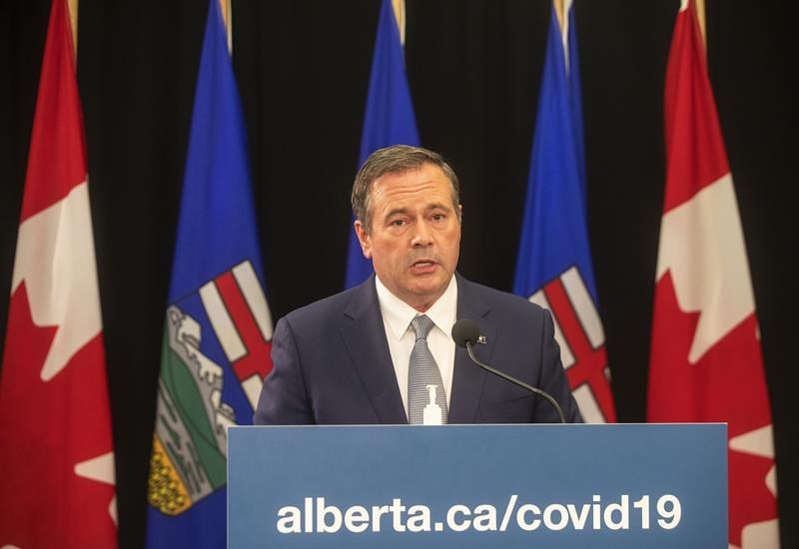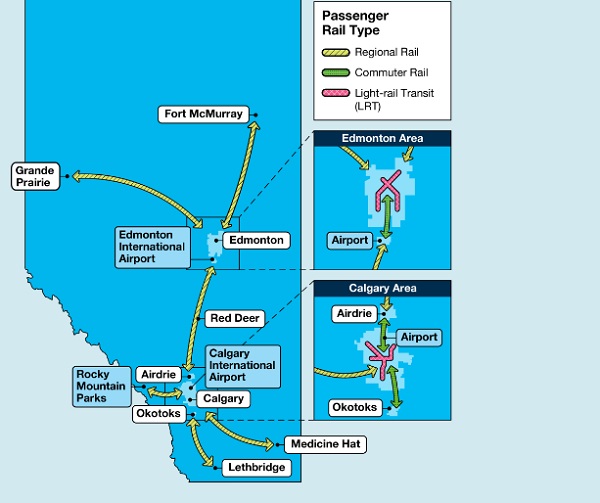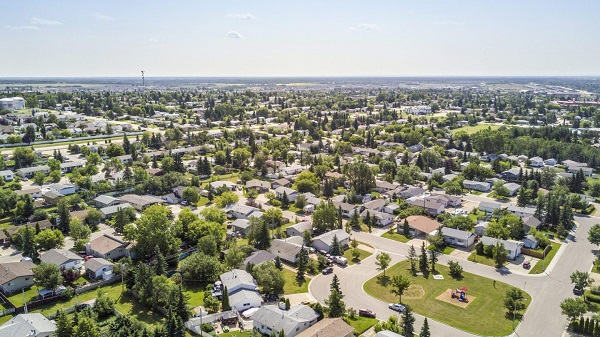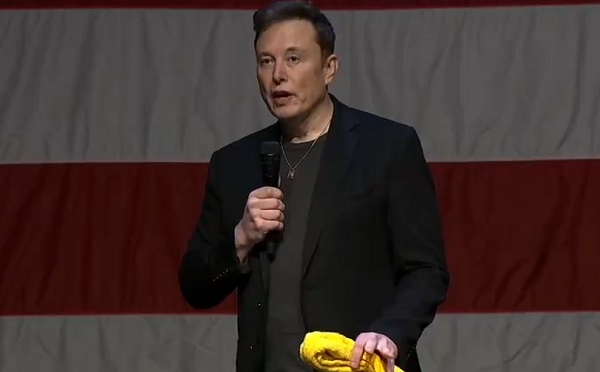Alberta
Half Capacity Crowds for World Junior Tournament – Alberta to restrict large gatherings to slow Omicron

More boosters, tests and measures to fight Omicron
Alberta’s government is taking further steps to strengthen vaccine protection and testing while bringing in new public health measures to reduce contact between Albertans as Omicron cases continue to grow.
All Albertans aged 18 and older can now book a booster shot, as long as at least five months have passed since their second dose, and Alberta has authorized the purchase of 10 million rapid tests.
New measures that will take effect on Dec. 24 will focus on avoiding super-spreader events by decreasing contacts in large capacity venues and limiting unrestricted activities where there is a high risk of transmission.
Albertans are also being asked to reduce their social contacts by 50 per cent during the holiday season.
New public health measures
The new mandatory measures taking effect at 12:01 a.m. on Dec. 24 are:
- For venues in the Restrictions Exemption Program – 50 per cent capacity limit at venues that seat more than 1,000 people. For venues with capacity of between 500 and 1,000 occupants, 500 is the limit.
- No food or drink consumption in seated audience settings or during intermissions in the above-mentioned venues.
- There is no impact on venues under 500.
- Maximum table capacity of 10 people in restaurants, pubs and bars. No mingling between tables.
- No interactive activities at restaurants, pubs and bars (e.g., dancing, darts and billiards).
- Restaurants, pubs and bars must stop liquor service at 11 p.m., and close at 12:30 a.m.
Restrictions continue for both indoor and outdoor social gatherings, weddings, funerals, places of worship and businesses. Albertans should also refrain from workplace social gatherings.
Masking remains mandatory in all indoor public spaces, including in facilities participating in the Restrictions Exemption Program. Masks should fit well and be of high quality. Albertans with risk factors for severe outcomes should wear medical masks in settings with those outside of their household.
COVID-19 boosters
All Albertans aged 18 and older who received their second COVID-19 vaccine at least five months ago can now book a third dose.
Albertans are encouraged to take the first mRNA vaccine available to them for a third dose. Both the Pfizer and Moderna vaccines offer a high level of protection against COVID-19, particularly against severe outcomes.
Pfizer will be offered to Albertans 18 to 29 years of age for booster purposes as a cautionary measure. While there is an increased risk of myocarditis in younger Albertans, especially in males, from Moderna, individuals are much more likely to experience myocarditis from COVID-19 infection than the vaccine.
All Albertans aged 18 and older can book appointments for third doses online with participating pharmacies or AHS by using the Alberta vaccine booking system or by calling AHS at 811.
At-home rapid test kits
In addition to ongoing orders for rapid tests from the Government of Canada, Alberta’s government will directly purchase up to 10 million rapid tests for anticipated delivery in January, allowing Albertans to secure immediate supplies.
More than 2.5 million rapid tests, or 500,000 rapid test kits, have already been made available to Albertans in the broad rollout that began on Dec 17. Additional supplies have been received from the federal government and are being shipped to participating AHS and pharmacy locations. If you have not already picked up your kit, visit alberta.ca/CovidRapidTests to find the location nearest you with available stock, as many locations still have supplies available.
“While these new measures will hopefully lower the risk at large events, our small everyday actions can have a big impact. This is why I appeal to all Albertans to reduce their number of contacts by half over the coming weeks, follow the guidelines already in place, and get the vaccine booster as soon as they are eligible. It’s the single most important thing anybody can do right now to protect themselves from Omicron.”
“These new measures, along with more boosters and rapid test availability, will help slow the spread of COVID-19. These efforts are critical as work continues to prepare our health-care system for potential challenges from the Omicron variant. I know Albertans are tired of the pandemic, but we need to take what we have learned from previous waves and urgently apply it to our current situation.”
“Now more than ever, it is important for Albertans to follow public health measures and consider how their actions may affect others. While we are still learning about Omicron, we do know that it is highly transmissible – cases are currently doubling in a matter of days. Reducing contacts will not only slow the spread of Omicron, but it can help us gain valuable time to prepare for what is to come.”
Alberta
Passenger rail experts from across the world to inform Alberta’s Passenger Rail Master Plan

Alberta’s future runs on rails
Alberta’s government is bringing together passenger rail experts from across the world to share best practices and inform the province’s Passenger Rail Master Plan.
As Alberta experiences record growth and evolving transportation needs, passenger rail infrastructure and services will be vital for enhancing accessibility and connecting communities. To support this, Alberta’s government is developing a Passenger Rail Master Plan to build the optimal passenger rail system for the province.
As part of the development of the plan, Alberta’s government is hosting a one-day forum to provide an opportunity for Alberta communities, industry and experts to collaborate and share information on passenger rail opportunities and challenges. The forum includes experts from Ontario, Quebec, California, Italy, Spain and Japan who are involved in passenger rail procurement, governance and operations. The sessions will allow for the sharing of best practices and lessons learned on passenger rail planning and development.
“Alberta was built by innovators and visionaries who saw potential in our province and its people. They believed that if you could dream it, you could achieve it. We believe there is opportunity and demand for passenger rail services in Alberta. Today’s forum marks an important step forward in the development of our Passenger Rail Master Plan and in achieving our vision for passenger rail.”
In line with the province’s commitment to engaging Albertans throughout the development of the Passenger Rail Master Plan, a survey has been launched to seek public input on passenger rail. Albertans are invited to complete the online survey by Dec. 20 to help shape the future of passenger rail in Alberta. There will be additional opportunities for Albertans to have their say on passenger rail in the future, including regional open houses which will be held in early 2025.
“Feedback from Albertans, Alberta municipalities, Indigenous communities and industry will be critically important to developing passenger rail services in Alberta. I encourage all Albertans to complete the online survey to help inform a shared vision for passenger rail to enhance accessibility, efficiency, and connectivity across the province.”
In April 2024, Alberta’s government shared its vision for passenger rail and announced the development of the Passenger Rail Master Plan for Alberta. The province’s vision is for an Alberta passenger rail system that includes public, private or hybrid passenger rail, including:
- a commuter rail system for the Calgary area that connects surrounding communities and the Calgary International Airport to downtown
- a commuter rail system for the Edmonton area that connects surrounding communities and the Edmonton International Airport to downtown
- passenger rail that runs between Calgary and Edmonton and the Rocky Mountain parks
- a regional rail line between Calgary and Edmonton, with a local transit hub in Red Deer
- municipal-led LRT systems in Calgary and Edmonton that integrate with the provincial passenger rail system
- rail hubs serving the major cities that would provide linkages between a commuter rail system, regional rail routes and municipal-led mass transit systems
The vision includes a province-led “Metrolinx-like” Crown corporation with a mandate to develop the infrastructure and oversee daily operations, fare collection/booking systems, system maintenance, and planning for future system expansion.
Quick facts
- The Passenger Rail Survey will be open until Dec. 20.
- Alberta’s Passenger Rail Master Plan is expected to be completed by summer 2025 and will include:
- a comprehensive feasibility assessment
- financial and delivery model options
- governance and operations recommendations
- a 15-year delivery plan
- public engagement
Related information
Alberta
REPORT: Alberta municipalities hit with $37 million carbon tax tab in 2023

Grande Prairie. Getty Images photo
From the Canadian Energy Centre
Federal cash grab driving costs for local governments, driving up property taxes
New data shows the painful economic impact of the federal carbon tax on municipalities.
Municipalities in Alberta paid out more than $37 million in federal carbon taxes in 2023, based on a recent survey commissioned by Alberta Municipal Affairs, with data provided to the Canadian Energy Centre.
About $760,000 of that came from the City of Grande Prairie. In a statement, Mayor Jackie Clayton said “if the carbon tax were removed, City property taxes could be reduced by 0.6 per cent, providing direct financial relief to residents and businesses in Grande Prairie.”
Conducted in October, the survey asked municipal districts, towns and cities in Alberta to disclose the amount of carbon tax paid out for the heating and electrifying of municipal assets and fuel for fleet vehicles.
With these funds, Alberta municipalities could have hired 7,789 high school students at $15 per hour last year with the amount paid to Ottawa.
The cost on municipalities includes:
Lloydminster: $422,248
Calgary: $1,230,300 (estimate)
Medicine Hat: $876,237
Lethbridge: $1,398,000 (estimate)
Grande Prairie: $757,562
Crowsnest Pass: $71,100
Red Deer: $1,495,945
Bonnyville: $19,484
Hinton: $66,829
Several municipalities also noted substantial indirect costs from the carbon tax, including higher rates from vendors that serve the municipality – like gravel truck drivers and road repair providers – passing increased fuel prices onto local governments.
The rising price for materials and goods like traffic lights, steel, lumber and cement, due to higher transportation costs are also hitting the bottom line for local governments.
The City of Grande Prairie paid out $89 million in goods and services in 2023, and the indirect costs of the carbon tax “have had an inflationary impact on those expenses” in addition to the direct costs of the tax.
In her press conference announcing Alberta’s challenge to the federal carbon tax on Oct. 29, 2024, Premier Danielle Smith addressed the pressures the carbon tax places on municipal bottom lines.
“In 2023 alone, the City of Calgary could have hired an additional 112 police officers or firefighters for the amount they sent to Ottawa for the carbon tax,” she said.
In a statement issued on Oct. 7, 2024, Ontario Conservative MP Ryan Williams, shadow minister for international trade, said this issue is nationwide.
“In Belleville, Ontario, the impact of the carbon tax is particularly notable. The city faces an extra $410,000 annually in costs – a burden that directly translates to an increase of 0.37 per cent on residents’ property tax bills.”
There is no rebate yet provided on retail carbon pricing for towns, cities and counties.
In October, the council in Belleville passed a motion asking the federal government to return in full all carbon taxes paid by municipalities in Canada.
The unaltered reproduction of this content is free of charge with attribution to the Canadian Energy Centre.
-

 Brownstone Institute22 hours ago
Brownstone Institute22 hours agoThe Most Devastating Report So Far
-

 Economy1 day ago
Economy1 day agoCOP 29 leaders demand over a $1 trillion a year in climate reparations from ‘wealthy’ nations. They don’t deserve a nickel.
-

 Censorship Industrial Complex1 day ago
Censorship Industrial Complex1 day agoAnother Mass Grave?
-

 ESG9 hours ago
ESG9 hours agoCan’t afford Rent? Groceries for your kids? Trudeau says suck it up and pay the tax!
-

 Alberta1 day ago
Alberta1 day agoMAiD In Alberta: Province surveying Albertans about assisted suicide policies
-

 Energy1 day ago
Energy1 day agoOttawa’s proposed emission cap lacks any solid scientific or economic rationale
-

 Alberta1 day ago
Alberta1 day agoOn gender, Alberta is following the science
-

 International10 hours ago
International10 hours agoElon Musk praises families on X: ‘We should teach fear of childlessness,’ not pregnancy


